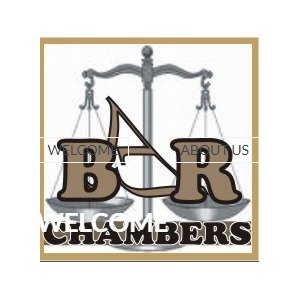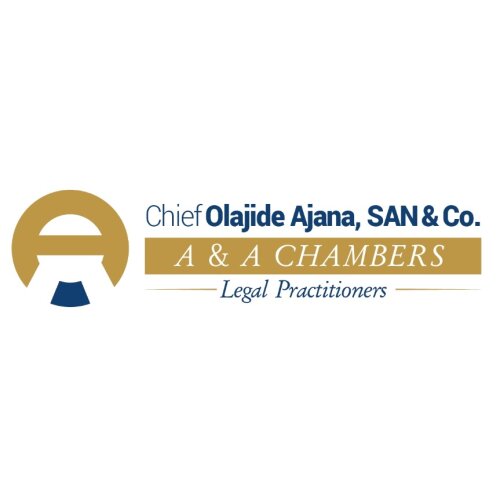Best Housing, Construction & Development Lawyers in Abuja
Share your needs with us, get contacted by law firms.
Free. Takes 2 min.
Free Guide to Hiring a Real Estate Lawyer
List of the best lawyers in Abuja, Nigeria
About Housing, Construction & Development Law in Abuja, Nigeria
Housing, Construction & Development Law in Abuja, Nigeria governs the legal aspects related to acquiring, building, and developing properties in the city. It encompasses regulations and guidelines that ensure the proper planning, construction, and use of buildings in order to promote safe and sustainable development.
Why You May Need a Lawyer
You may find yourself needing a lawyer specializing in Housing, Construction & Development in Abuja, Nigeria in various situations:
- Buying or selling property
- Negotiating lease or rental agreements
- Resolving disputes with contractors, builders, or tenants
- Obtaining necessary permits and licenses
- Understanding zoning regulations
Local Laws Overview
When dealing with Housing, Construction & Development in Abuja, Nigeria, it is important to be aware of the following key laws:
- The Abuja Metropolitan Management Council Act
- The Abuja Environmental Protection Board Act
- The Federal Capital Development Authority Act
- The Urban and Regional Planning Law
- The Nigerian Building and Road Research Institute Act
Frequently Asked Questions
1. Can a landlord terminate a tenancy agreement without any reason?
No, under Abuja's tenancy laws, a landlord can only terminate a tenancy agreement if the tenant violates the terms of the agreement, fails to pay rent, or engages in illegal activities on the property.
2. What permits do I need when constructing a building in Abuja?
You will need to obtain permits such as a building plan approval, environmental impact assessment, and development control approval from the appropriate government agencies in Abuja.
3. How can I resolve a dispute with a contractor over unsatisfactory work?
If you have a dispute with a contractor, you can seek legal advice and attempt mediation or arbitration to resolve the issue. If necessary, you can also file a lawsuit in court.
4. Are there any restrictions on the use of land in Abuja?
Yes, there are zoning regulations in Abuja that restrict the use of land for specific purposes such as residential, commercial, or industrial. It is important to understand these restrictions before initiating any development.
5. What are the rights and responsibilities of tenants in Abuja?
Tenants have the right to occupy a habitable property, the right to privacy, and the right to be protected from unlawful eviction. They are also responsible for paying rent on time, maintaining the property, and abiding by the terms of the tenancy agreement.
Additional Resources
Here are some resources that can provide further assistance on Housing, Construction & Development in Abuja, Nigeria:
- Abuja Metropolitan Management Council (AMMC)
- Abuja Environmental Protection Board (AEPB)
- Federal Capital Development Authority (FCDA)
- Ministry of Housing and Urban Development
- Real Estate Developers Association of Nigeria (REDAN)
Next Steps
If you need legal assistance in Housing, Construction & Development in Abuja, Nigeria, it is recommended to:
- Research and gather information about your specific issue
- Consult with a reputable lawyer specializing in Housing, Construction & Development
- Provide all relevant documents and information related to your case
- Follow the guidance and advice provided by your lawyer to navigate the legal process
- Keep records of all communications and agreements related to your case
Lawzana helps you find the best lawyers and law firms in Abuja through a curated and pre-screened list of qualified legal professionals. Our platform offers rankings and detailed profiles of attorneys and law firms, allowing you to compare based on practice areas, including Housing, Construction & Development, experience, and client feedback.
Each profile includes a description of the firm's areas of practice, client reviews, team members and partners, year of establishment, spoken languages, office locations, contact information, social media presence, and any published articles or resources. Most firms on our platform speak English and are experienced in both local and international legal matters.
Get a quote from top-rated law firms in Abuja, Nigeria — quickly, securely, and without unnecessary hassle.
Disclaimer:
The information provided on this page is for general informational purposes only and does not constitute legal advice. While we strive to ensure the accuracy and relevance of the content, legal information may change over time, and interpretations of the law can vary. You should always consult with a qualified legal professional for advice specific to your situation.
We disclaim all liability for actions taken or not taken based on the content of this page. If you believe any information is incorrect or outdated, please contact us, and we will review and update it where appropriate.

















